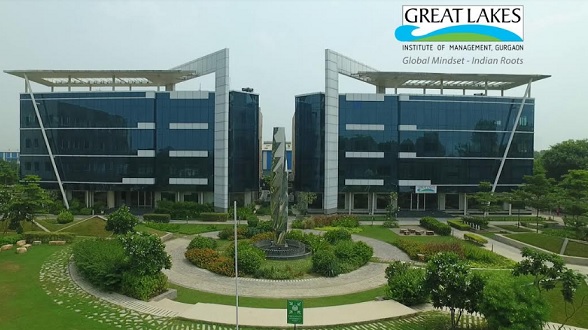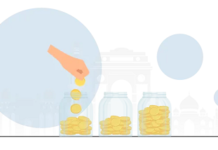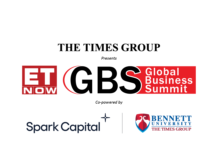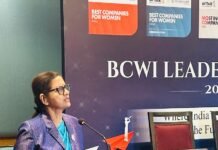Gurgaon, Haryana, India | 22nd January 2021: As the economy moves towards post-pandemic recovery, customers are tending to choose brands that they trust more than others. It is imperative that the focus of brands, now more than ever, should be on earning the trust of customers through real-world actions instead of just advertisements. This was said by some of India’s prominent marketing gurus participating at Sapience 2020-21, the Annual Management Conclave of the Great Lakes Institute of Management, Gurgaon, held in January 2021.

The key panelists, including Shashank Srivastava, Executive Director, Maruti Suzuki India Ltd.; Sanjay Gupta, Marketing Director – APAC, Uber; and Deepak Ohri, CEO, Lebua Hotels & Resorts, Bangkok, stressed that investing in the welfare of employees, digitization of businesses, and revisiting the pricing of products and services due to the pandemic-induced drop in purchasing power of customers are important to ensure the resilience of brands. Prof. Anirban Chaudhuri, Great Lakes Institute of Management, Gurgaon, moderated the session.
Shashank Srivastava, Executive Director, Maruti Suzuki India Ltd., said that the trust of customers is the fundamental currency in post-COVID economic recovery, as they are going to channel their spending on more established and well-known brands. He revealed that from zero sales in April 2019 when the hard lockdown started, Maruti could start registering impressive sales in the second and third quarters of the financial year because of its track record of being a reliable brand for over 40 years during which it acquired the trust of over 2.2 crore customers.
He said that the pandemic has accelerated the pace of digitization of businesses multifold. “In 2016, the rate of online enquiries for Maruti models was about 3%. It increased to 15% in 2019 when the pandemic was just breaking out. In the last three months, this has shot up to a whopping 50%,” he added. A car buyer uses 27 touch points in his or her purchasing journey, out of which, Maruti India has already digitized 23 touch points.”
Sanjay Gupta, Marketing Director – APAC, Uber, highlighted the initiatives taken by Uber India for the financial stability of drivers and ensuring the safety of drivers and riders during the pandemic. “We have more than one lakh driver partners. We created Uber Driver Care Fund to provide them financial help. We also introduced Uber Essentials, a new service category for the safe commute of healthcare professionals and other frontline workers in India. For the drivers of this service, we provided PPEs, hand sanitizers and safety screens in the vehicles. These visible actions created much goodwill in the minds of customers than any advertisement would have,” he added.
Deepak Ohri, CEO, Lebua Hotels & Resorts, Bangkok, said that retaining the emotional connect of employees and customers proved to be a very effective tool for his hotel chain to start getting back to business better than its competitors. “We employ about 1,500 people. Our hotels in Thailand, India, and New Zealand, were closed for four months during the lockdown but we didn’t send a single employee home, though there was a cut in salary. The cost of production went up when we restarted our business, but we maintained the same rate card for our services by slashing our profit margins. We also invested in the safety of our employees and guests by taking special precautions on hygiene,” he added.
Deepak Ohri said that the pandemic has resulted in the growth of local brands and properties which are equipped to tap the emerging market of millennials much better than large, global chains which have mostly relied all baby boomers till now. For the hospitality industry to witness full recovery, it might take two more years, he added.
The panelists also shared their views on data privacy, digital media, and reversible and irreversible changes due to the pandemic specific to their industry. Dr. Umashankar Venkatesh, Professor, Marketing & Director, PGPM, Great Lakes Institute of Management, Gurgaon, welcomed the gathering. Prof. Jones Mathew, Professor, Marketing, with Great Lakes Institute of Management, Gurgaon, delivered the concluding remarks. Over 400 participants, including students and top executives from different industries, attended the session.
Great Lakes Institute of Management, Gurgaon, established in 2010, has emerged as one of India’s most innovative business schools. In the year 2019, it received the prestigious AMBA accreditation. It was also ranked among the top 5 emerging management business schools by the National HRD Network (NHRDN) for the year 2018-2019. It was ranked 23rd by NIRF among top B-Schools between the year 2017-2020.




